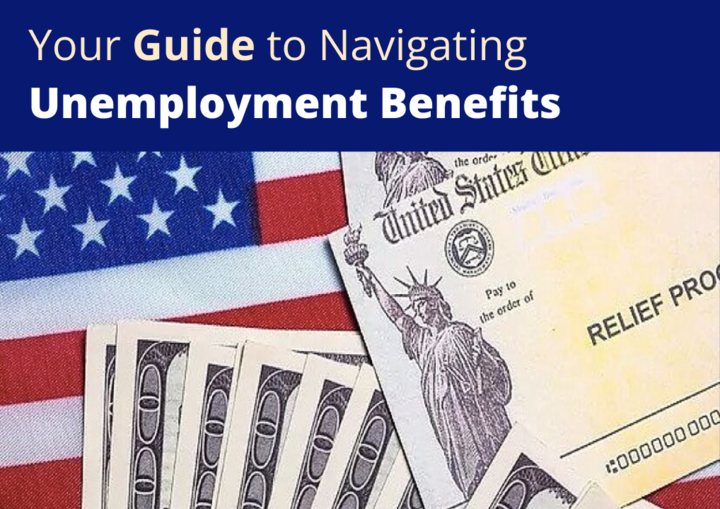Understanding your financial situation is the cornerstone of effective retirement planning. This process begins with a comprehensive evaluation of your current assets, liabilities, income, and expenses.
Start by compiling a detailed list of all your financial resources, including savings accounts, retirement accounts, real estate, and any other investments.
It’s equally important to account for your debts, such as mortgages, credit card balances, and loans. This dual perspective will provide a clearer picture of your net worth and help you identify areas that may require attention. Once you have a clear snapshot of your financial landscape, it’s essential to analyze your cash flow.
This involves tracking your monthly income against your expenses to determine how much you can allocate toward savings or investments. Consider using budgeting tools or apps that can help you visualize your spending patterns. By understanding where your money goes each month, you can make informed decisions about where to cut back and how to increase your savings rate.
This assessment not only highlights your current financial health but also sets the stage for more strategic planning as you approach retirement.
Key Takeaways
- Assess your current financial situation to understand where you stand.
- Re-evaluate your retirement goals to ensure they align with your current financial situation.
- Review your investment portfolio to make sure it is in line with your retirement goals.
- Consider part-time work or side income to supplement your retirement savings.
- Explore healthcare options to ensure you have adequate coverage in retirement.
- Create a budget and cut expenses to free up more money for retirement savings.
- Seek financial advice and guidance to make informed decisions about your retirement.
- Revise your estate and legacy plans to ensure your assets are distributed according to your wishes.
Re-evaluating Your Retirement Goals
Retirement goals are not static; they evolve over time based on personal circumstances, market conditions, and lifestyle aspirations. As you assess your financial situation, take the opportunity to re-evaluate what retirement means to you. Are you envisioning a life filled with travel and adventure, or do you prefer a quieter existence focused on hobbies and family?
Your goals should reflect your values and desires, which may have shifted since you first began planning for retirement. In addition to personal aspirations, consider the practical aspects of your retirement goals. This includes determining the age at which you wish to retire and the lifestyle you want to maintain during those years.
It’s crucial to align these goals with your financial capabilities. For instance, if you dream of retiring early to travel extensively, you may need to adjust your savings strategy or explore additional income sources. Engaging in discussions with family members about their expectations can also provide valuable insights into how your retirement plans may impact them.
Reviewing Your Investment Portfolio
A well-structured investment portfolio is vital for achieving long-term financial security in retirement. Begin by reviewing the asset allocation within your portfolio to ensure it aligns with your risk tolerance and retirement timeline. As you age, it’s generally advisable to shift toward a more conservative investment strategy to protect your assets from market volatility.
This might involve reallocating funds from high-risk stocks to more stable bonds or dividend-paying investments. Moreover, consider the performance of individual investments within your portfolio. Are there underperforming assets that may be dragging down overall returns?
Regularly assessing the performance of mutual funds, ETFs, or individual stocks can help you make informed decisions about whether to hold or sell these investments. Additionally, keep an eye on fees associated with your investments; high fees can erode returns over time. By conducting a thorough review of your investment portfolio, you can make necessary adjustments that align with both your risk tolerance and retirement goals.
Considering Part-time Work or Side Income
As you approach retirement, the idea of part-time work or generating side income can be an appealing option for many individuals. This approach not only provides additional financial security but also offers opportunities for social engagement and personal fulfillment. Consider what skills or hobbies you possess that could be monetized.
For example, if you have a passion for gardening, starting a small landscaping business could be both enjoyable and profitable. Part-time work can also serve as a bridge into retirement, allowing you to gradually transition from full-time employment while still maintaining a steady income stream. Many retirees find satisfaction in consulting roles or freelance opportunities that leverage their professional expertise without the demands of a full-time job.
Additionally, engaging in part-time work can help keep you mentally sharp and socially connected, which are crucial factors for overall well-being in retirement.
Exploring Healthcare Options
Healthcare is one of the most significant expenses retirees face, making it essential to explore various options well in advance of retirement. Begin by familiarizing yourself with Medicare and its different parts: Part A (hospital insurance), Part B (medical insurance), Part C (Medicare Advantage), and Part D (prescription drug coverage). Understanding these components will help you make informed decisions about your healthcare coverage as you age.
In addition to Medicare, consider supplemental insurance options that can help cover out-of-pocket costs not included in standard Medicare plans. Medigap policies can provide additional coverage for expenses such as copayments and deductibles.
Furthermore, it’s wise to research long-term care insurance if you anticipate needing assistance with daily activities in the future.
By proactively exploring healthcare options and understanding the associated costs, you can better prepare for the financial implications of medical care in retirement.
Creating a Budget and Cutting Expenses
Creating a budget is a fundamental step in managing your finances effectively as you approach retirement. A well-structured budget allows you to allocate funds toward essential expenses while identifying areas where you can cut back. Start by categorizing your expenses into fixed costs (such as housing and utilities) and variable costs (like entertainment and dining out).
This breakdown will help you see where adjustments can be made without sacrificing your quality of life. Once you’ve established a budget, focus on identifying discretionary spending that can be reduced or eliminated altogether. For instance, consider dining out less frequently or canceling subscriptions that are no longer used.
Small changes can add up significantly over time, contributing to increased savings that can be redirected toward retirement accounts or investments. Additionally, regularly reviewing and adjusting your budget will ensure that it remains aligned with your evolving financial situation and goals.
Seeking Financial Advice and Guidance
Navigating the complexities of retirement planning can be daunting, which is why seeking professional financial advice is often beneficial. A certified financial planner can provide personalized guidance tailored to your unique circumstances and goals. They can help you develop a comprehensive retirement strategy that encompasses investment management, tax planning, and estate considerations.
When selecting a financial advisor, consider their qualifications, experience, and fee structure. Look for professionals who have a fiduciary duty to act in your best interest rather than those who may earn commissions on product sales. Engaging in regular discussions with your advisor will ensure that your retirement plan remains on track and adapts to any changes in your financial situation or market conditions.
Revising Your Estate and Legacy Plans
As you approach retirement, it’s crucial to revisit your estate and legacy plans to ensure they reflect your current wishes and circumstances. Start by reviewing wills, trusts, and beneficiary designations on accounts such as life insurance policies and retirement accounts. Changes in family dynamics—such as marriages, divorces, or births—may necessitate updates to these documents.
Additionally, consider how you want to leave a legacy for future generations or charitable organizations that are important to you. Establishing a charitable trust or donor-advised fund can provide tax benefits while allowing you to support causes close to your heart during your lifetime and beyond. By taking the time to revise your estate plans thoughtfully, you can ensure that your assets are distributed according to your wishes while minimizing potential tax implications for your heirs.
In summary, approaching retirement requires careful consideration of various factors that influence both financial stability and personal fulfillment during this significant life transition. By assessing your financial situation comprehensively, re-evaluating goals, reviewing investments, exploring income opportunities, understanding healthcare options, creating budgets, seeking professional advice, and revising estate plans, you can navigate this journey with confidence and clarity.
FAQs
What are some common reasons for adjusting retirement plans during a crisis?
During a crisis, individuals may need to adjust their retirement plans due to factors such as job loss, market volatility, unexpected medical expenses, or changes in living expenses.
How can job loss impact retirement plans?
Job loss can impact retirement plans by reducing income and potentially delaying retirement. It may also affect contributions to retirement accounts and employer-sponsored benefits.
What are some strategies for adjusting retirement plans during a crisis?
Strategies for adjusting retirement plans during a crisis may include reassessing financial goals, reducing expenses, exploring alternative income sources, adjusting investment strategies, and seeking professional financial advice.
How can market volatility affect retirement plans?
Market volatility can impact retirement plans by affecting the value of investment accounts and potentially reducing retirement savings. It may also influence the timing of retirement and the ability to generate income from investments.
What role does emergency savings play in adjusting retirement plans during a crisis?
Emergency savings can provide a financial cushion during a crisis, allowing individuals to cover unexpected expenses without tapping into retirement savings or investments. This can help preserve long-term retirement goals.







